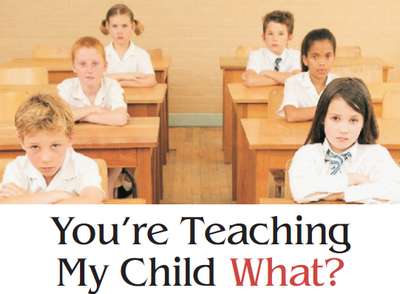Parents Want Education In Schools, Not Sexualisation
 Media Release 8 July 2015
Media Release 8 July 2015
Family First NZ is rubbishing the agenda of Family Planning to teach teenagers in schools about ‘pleasuring’ your partner, orgasms, arousal and erogenous zones, and says that this is a continued assault on our young people and ignoring what parents want taught and what young people need.
“Parents aren’t sending their children to school to learn about orgasms and erogenous zones. They expect an education for their children related to reading, writing and arithmetic – not to be sexualised with inappropriate material that teenagers are not emotionally or physically ready for and which parents are not calling for or expecting,” says Bob McCoskrie, National Director of Family First NZ.
“The most successful programs are those that show how delaying sexual activity protects a young person from STD’s, teen pregnancy and emotional trauma. They also underline the importance of self-control and responsibility, and the positive impact of delaying sexual activity on their emotional and mental welfare and academic performance.”
“The good news is that rates of sexual involvement have fallen significantly recently for teens – no thanks to groups like Family Planning or Rainbow Youth – but it has nothing to do with ‘safe sex’, and everything to do with education and awareness for teens on the consequences and making better choices,” says Mr McCoskrie.
A poll of parents in 2010 found that three out of four parents want the abstinence message taught in sex education. And a nationwide poll in January 2012 of 600 young people aged 15-21 found that the overwhelming majority wanted ‘values, abstinence, and consequences such as pregnancy’ focused on.
“Once again, Family Planning are sexualising students with resources which fail to take into account the emotional and physical development of each child and the values of that particular family. Parents know their children the best and should determine the best timing and most appropriate way to tackle these sensitive topics. A valueless ‘one size fits all’ approach is far too simplistic and can even be harmful.”
“Studies show that the biggest protective factors for coping with puberty and sexual involvement are married parents, family values, parental supervision, and parental expectations for behaviour. What happens at home is the greatest determinant of the outcomes for the young person.”
“A recent international study found that by the age of ten years old, most children will have already had their first ‘facts of life’ talk with their parents. Parents are now looking to pre-empt the unacceptable messages being pushed in the media, on the internet, and by groups abusing the sex education curriculum which pollute their young children’s minds and innocence. Parents are the best moral gatekeepers for their children. We should be resourcing parents – not strangers in classrooms,” says Mr McCoskrie.
A recent review of sex education resources recommended to adolescents in NZ found that they are seriously flawed with both sins of commission and sins of omission, and that critical life and death information is distorted or ignored.
ENDS






